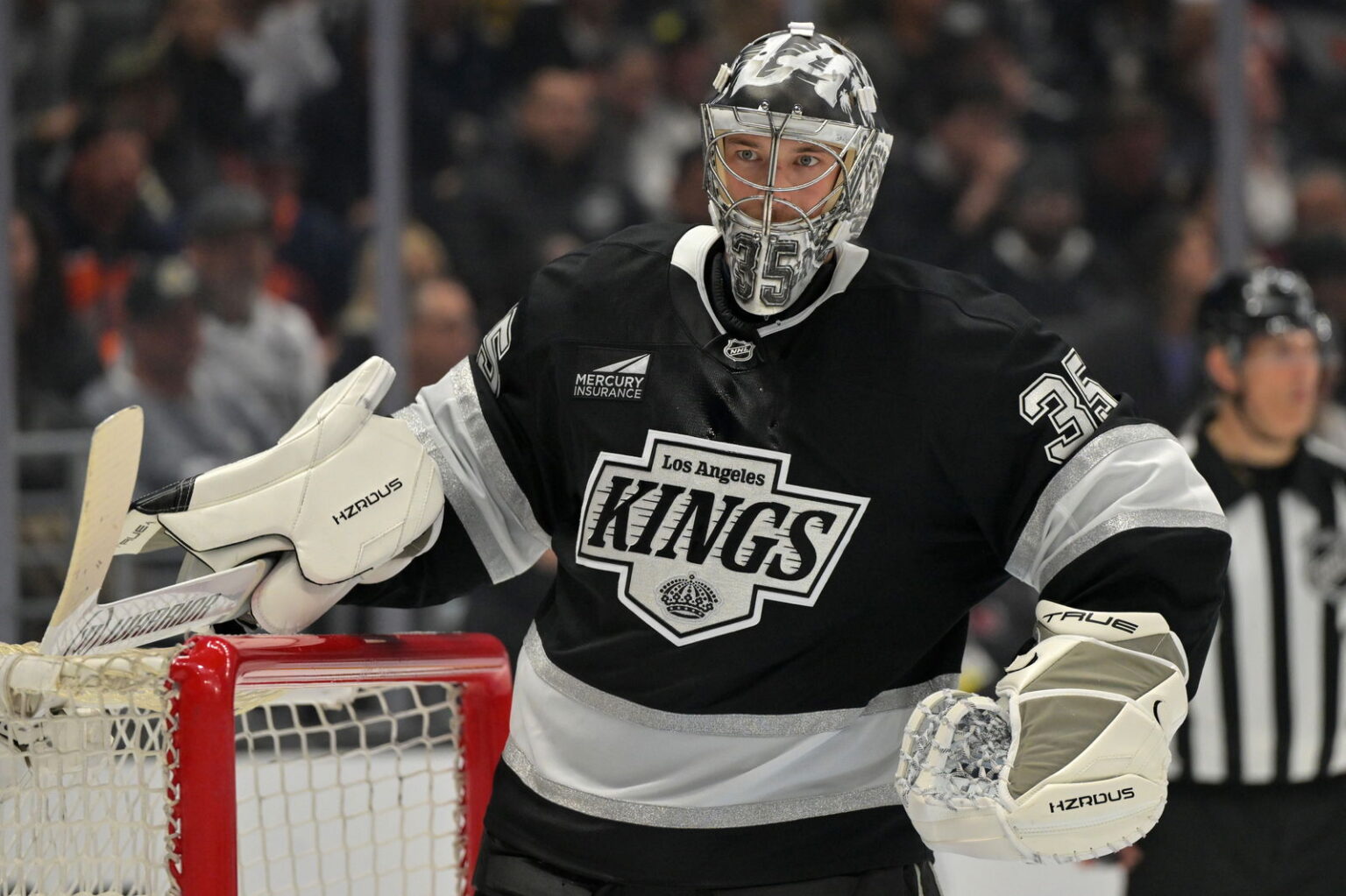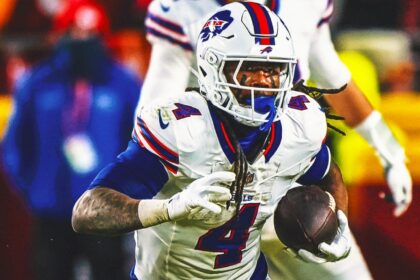El Segundo, California – The Los Angeles Kings have long been known for their dependable goaltending, a tradition that began with Jonathan Quick. This stability allowed the team to trade away backup goalies like Martin Jones, Jonathan Bernier, and Ben Scrivens with confidence. However, since Quick was traded during the 2022-23 season, the Kings have rotated through three starting goalies. Despite this goaltending unpredictability, the team’s system helped produce unexpectedly strong outcomes. Two of those goalies, Cam Talbot and Darcy Kuemper, found success in Los Angeles. Kuemper, in particular, backed by the league’s top penalty-killing defense, posted one of the best seasons for a Kings goalie since Quick’s Vezina Trophy-winning year in 2017-18.
At 34, Kuemper recorded an impressive .922 save percentage, the second-best in the NHL among goalies with over 40 games. His 31-11-7 record with five shutouts helped the Kings stay competitive in the Pacific Division for most of the season. His performance in the final 14 games was elite, with a 1.31 goals-against average and a .943 save percentage, making him a natural Vezina Trophy candidate. Kuemper didn’t just bounce back from previous inconsistencies; he elevated himself to the NHL’s elite goaltending tier.
For the Kings, Kuemper’s excellence wasn’t a surprise but rather a reliable foundation. The team’s success lies in striking a balance—not relying solely on elite goaltending to win games but leaning on goalies when necessary. Last season showed this approach; while the defense supported Kuemper consistently, there were moments where he carried the team. However, as they approach the 2025-26 season, the Kings’ reliance on Kuemper has increased significantly.
This dependency is risky, as the goalie depth behind Kuemper is weak. Although franchise prospects offer hope, they aren’t ready to assume backup roles yet. The team’s core players, including Kuemper, defenseman Drew Doughty, and center Anze Kopitar, are all over 34 years old, adding uncertainty to the team’s competitive future. While there are capable players backing up Kopitar and Doughty, Kuemper lacks that established support. If he can’t maintain his form or stay healthy, the Kings risk significant vulnerability in goal.
The Kings’ current backup goalies include veteran Anton Forsberg and Phoenix Copley, alongside young prospect Erik Portillo, who is still unproven at the NHL level. Copley, 32, has a career save rate below .900, and Forsberg shows occasional reliability but lacks consistency. This puts immense pressure on Kuemper to carry most of the load. Given the slow and aging defense corps, managing Kuemper’s workload is crucial. If he plays more than 55 games and regresses from his .922 save percentage, the Kings could lose ground in the playoff race. And if injury sidelines Kuemper, the tandem of Copley and Forsberg may not be sufficient.
Erik Portillo, 24, is a promising talent who shone in the AHL with a 24-11-3 record, 2.50 GAA, and .918 save percentage, earning praise as a top rookie. However, with only one NHL game experience, it’s premature to expect him to be more than a long-term project. He is a potential future backup, but the Kings cannot yet rely on him fully.
Historically, the Kings have been a haven for goaltenders, whether it was Quick’s dominance, Talbot’s brief success, or Kuemper’s resurgence. Their coaching and defensive system have enabled goalies to thrive, but this success masks deeper concerns about depth behind their starters. The lack of a strong goaltending pipeline is a serious issue. While Portillo and other prospects like Carter George and Hampton Slukynski have potential, they remain unproven.
If Kuemper fails to replicate his performance or suffers injuries, the Kings could drop from playoff locks to bubble teams in the fiercely competitive Pacific Division. Relying on Forsberg or Copley would likely yield mediocre results at best, forcing the franchise into a tough choice between risking Portillo’s development or trading assets for emergency reinforcements—neither favorable for a team seeking stability.
Kuemper’s 2024-25 campaign was a revelation, but the Kings’ reliance on him now borders on precarious. Unlike previous years, the team lacks quality backup support, increasing the importance of his health and effectiveness. While Los Angeles’ defense and coaching favor goalie success, a strong reputation can only protect so long. Without a repeat of last season’s performance, the Kings may end up wasting the final prime years of stars like Kopitar and Doughty, finishing far from their playoff goals.
Fan Take: This news is crucial for hockey fans as it highlights the fragile nature of goaltending stability—often a team’s backbone—and how it can shape playoff hopes. For the Kings, navigating this transitional period will test their development pipeline and adaptability, potentially influencing the NHL’s competitive landscape in the coming years.



